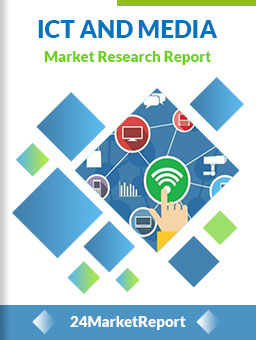
Download FREE Report Sample
Download Free sample
MARKET INSIGHTS
Global online reservation system market size was valued at USD 61.2 billion in 2024 and is projected to reach USD 145.83 billion by 2032, exhibiting a CAGR of 13.5% during the forecast period. While the U.S. remains a dominant market, China is emerging as a high-growth region with increasing digital adoption rates across industries.
Online reservation systems are digital platforms that enable businesses to manage bookings, appointments, and scheduling across multiple channels. These systems typically include features such as real-time availability tracking, automated confirmations, payment processing, and calendar synchronization. The solutions serve diverse industries including hospitality, healthcare, transportation, and entertainment through both PC/tablet and mobile interfaces.
The market growth is primarily driven by the rapid digital transformation across service industries and rising consumer preference for self-service booking options. The COVID-19 pandemic accelerated adoption as businesses sought contactless solutions. Recent developments include integration of AI-powered chatbots for automated reservations and blockchain technology for secure transactions. Key players like Booking Live, Checkfront, and Rezdy are expanding their offerings through strategic partnerships and cloud-based solutions to capture this growing demand.
Proliferation of Digital Transformation Across Industries Accelerates Online Reservation Adoption
The global shift toward digitalization continues to reshape business operations, with the hospitality, healthcare, and entertainment sectors leading adoption of online reservation systems. Over 65% of service-based businesses now prioritize digital booking solutions to enhance customer experience. These systems significantly reduce administrative burdens while improving operational efficiency - restaurants using reservation platforms report 40-50% reductions in no-show rates through automated reminders. The rising smartphone penetration rate, projected to reach 7.7 billion users by 2028, further propels market expansion as consumers increasingly demand mobile-first booking experiences.
Post-Pandemic Behavioral Shifts Create Sustained Demand for Contactless Solutions
To know more about market statistics, Download a FREE Sample copy
COVID-19 fundamentally altered consumer expectations, with 82% of customers now preferring businesses offering digital reservation options. The healthcare sector's adoption grew particularly rapidly, with patient scheduling software implementations increasing by 230% during the pandemic. This behavioral shift persists as hybrid models become standard - fitness studios utilizing online booking report 35% higher member retention compared to traditional methods. Integration with payment gateways and CRM systems creates additional value, allowing businesses to personalize offerings based on booking histories and preferences.
Fragmented Market Landscape and Integration Complexities Hinder Widespread Adoption
While the online reservation market grows rapidly, significant challenges remain. Many SMBs struggle with platform selection as over 600 competing solutions create decision paralysis. Integration with legacy POS systems proves particularly problematic, with 45% of implementations requiring custom API development. Data migration issues frequently disrupt operations - a recent industry analysis found 60% of businesses experience temporary revenue losses during system transitions.
Other Challenges
Technical Barriers
Smaller operators often lack IT resources to maintain reservation platforms. Approximately 30% of system malfunction incidents stem from inadequate staff training rather than software failures. Cybersecurity concerns also persist, with booking systems accounting for 12% of hospitality sector data breaches in 2023.
Consumer Resistance
Despite digital trends, 28% of customers still prefer telephone reservations for complex bookings. This generational divide creates operational inefficiencies as businesses maintain dual reservation channels.
Subscription Fatigue and Pricing Pressures Limit Market Penetration
The SaaS-based pricing models common in reservation systems face growing resistance as businesses manage multiple software subscriptions. Recent surveys indicate 43% of SMBs consider reservation platform costs prohibitive, with average prices increasing 18% since 2021. Tiered pricing structures frequently lead to feature fragmentation, where critical capabilities reside in premium plans. This creates particular challenges for seasonal businesses, as 62% report underutilizing year-round subscriptions during off-peak periods.
AI-Powered Personalization and Vertical-Specific Solutions Open New Growth Avenues
Advanced analytics capabilities present significant opportunities, with reservation systems leveraging AI showing 27% higher engagement rates through personalized recommendations. Niche markets remain underserved - specialized solutions for medical practices incorporating HIPAA compliance and insurance verification could capture $2.3 billion in untapped potential. The integration of augmented reality for venue previews and IoT for real-time capacity monitoring represent emerging differentiators. Payment flexibility is becoming crucial, as platforms offering installment options see 40% higher conversion rates for high-value bookings.
Mobile Terminal Segment Leads Adoption Due to Growing Smartphone Penetration
The market is segmented based on type into:
PC/Tablet Terminal
Mobile Terminal
B2C Segment Dominates with Consumer-Facing Booking Platforms
The market is segmented based on application into:
B2B
B2C
Cloud-Based Solutions Grow Rapidly with SaaS Adoption
The market is segmented based on deployment into:
Cloud-based
On-premise
Hospitality & Travel Accounts for Largest Market Share
The market is segmented based on industry vertical into:
Hospitality & Travel
Healthcare
Beauty & Wellness
Education
Others
Innovative Solutions and Market Expansion Define the Competitive Arena
The global online reservation system market exhibits a dynamic competitive landscape, characterized by a mix of established players and emerging innovators. The market's projected valuation of $145.83 billion by 2032 has intensified competition, with companies vying for dominance through technological differentiation and strategic acquisitions. Notably, the top five players collectively hold a significant market share, though exact figures fluctuate annually due to rapid sector evolution.
Booking Live and BookingBug currently lead the industry, leveraging their comprehensive SaaS platforms that integrate seamlessly with existing business infrastructures. Their success stems from multi-channel booking capabilities and robust API ecosystems, which cater to enterprises requiring scalability. Meanwhile, Checkfront has carved a niche in outdoor recreation and tourism through specialized inventory management tools, demonstrating how vertical-specific solutions can drive market penetration.
Smaller but disruptive players like Appointy and SimplyBook.me are gaining traction through freemium models and micro-targeted marketing strategies. Their cloud-native architectures appeal to SMBs seeking affordable, turnkey solutions—a segment that accounted for nearly 45% of new deployments in 2024 according to industry benchmarks. This trend highlights the market's bifurcation between enterprise-grade systems and agile, cost-effective alternatives.
The competitive environment continues to evolve with three key developments:
The rapid adoption of cloud-based online reservation systems is transforming the industry, enabling businesses to streamline operations with scalable and cost-effective solutions. Cloud deployment models accounted for 62% of total reservations system implementations in 2024, as they offer real-time synchronization across multiple platforms and enhanced data security. This shift is particularly evident in hospitality and healthcare sectors, where demand for integrated booking platforms has grown by 28% year-over-year. AI-powered dynamic pricing algorithms and automated inventory management features are becoming standard offerings, creating more value for end-users.
Mobile-First Booking Experiences
Consumer preference for mobile bookings continues to surge, with 73% of all reservations now made through smartphones globally. This has compelled service providers to prioritize responsive design and dedicated mobile apps with one-click booking functionality. The B2C segment is witnessing particularly strong growth in mobile adoption, showing a 35% increase in conversion rates compared to traditional desktop interfaces. Emerging technologies like progressive web apps (PWAs) are bridging the gap between web and native app experiences, reducing development costs while maintaining performance.
Artificial Intelligence is revolutionizing reservation systems through intelligent chatbots and voice assistants that handle 40% of routine booking inquiries without human intervention. Natural Language Processing (NLP) capabilities allow these systems to understand complex requests, suggest personalized options, and even process multilingual bookings. Hotels using AI-powered reservation tools report 22% higher customer retention rates due to improved response times and personalized recommendations. The integration of predictive analytics also enables businesses to forecast demand patterns with 89% accuracy, optimizing resource allocation.
North America
North America dominates the online reservation system market, driven by advanced digital infrastructure and high adoption of cloud-based solutions across hospitality, healthcare, and service industries. The U.S. accounts for over 68% of regional revenue, with businesses prioritizing automation to enhance customer experience. The shift toward mobile-first booking platforms is accelerating, supported by 89% smartphone penetration. While enterprise-grade systems lead the B2B segment, SMBs increasingly adopt solutions like Square Appointments due to affordability and ease of integration. Regulatory emphasis on data privacy (CCPA, HIPAA compliance requirements) shapes product development, though this also raises operational costs for providers.
Europe
Europe's market thrives on strict GDPR compliance standards and the rapid digitization of historic businesses. Germany and the UK collectively hold 45% market share, where omnichannel reservation systems blending desktop and mobile functionality are becoming standard. EU-wide initiatives promoting tourism digitalization have spurred adoption, particularly in Southern Europe's hospitality sector. However, preference for localized solutions over global platforms creates fragmentation, with regional players like SimplyBook.me gaining traction. The B2C segment shows strongest growth (14.2% CAGR), though B2B adoption lags due to entrenched legacy systems in corporate travel management.
Asia-Pacific
As the fastest-growing region (18.7% projected CAGR 2024-2032), APAC's expansion is fueled by China's dominance in mobile payment-integrated systems and India's booming service sector. China alone contributes 39% of regional revenue through platforms like Ctrip and Meituan, while Southeast Asian nations increasingly adopt aggregator models. Unique challenges include low credit card penetration driving demand for alternative payment integrations and cultural preferences for messenger-based bookings via WeChat/Line. Japan and Australia exhibit mature markets favoring specialized vertical solutions (e.g., healthcare scheduling systems), contrasting with emerging economies where all-in-one platforms dominate.
South America
The region shows uneven adoption, with Brazil representing 62% of the market through its thriving tourism and beauty service industries. Economic instability limits investment in premium solutions, making freemium models popular. The lack of Spanish/Portuguese language support in global platforms creates opportunities for local providers like AgendaPro. Mobile bookings grew 217% since 2020 as smartphone usage surpassed 70% penetration. While B2C applications lead growth, B2B adoption remains nascent outside major corporate hubs in Santiago and Buenos Aires, hindered by unreliable broadband infrastructure in secondary cities.
Middle East & Africa
Gulf Cooperation Council nations drive regional growth (UAE accounts for 41% market share), where luxury hospitality demands drive adoption of high-end reservation systems with Arabic/Farsi support. African markets show promise with mobile money-integrated solutions like AI-powered scheduling tools in Kenya's healthcare sector. Challenges include low digital literacy outside urban centers and payment infrastructure gaps. The religious tourism boom in Saudi Arabia (projected 30 million Hajj/Umrah visitors by 2030) is spurring specialized pilgrimage management systems, representing a unique regional niche.
This market research report offers a holistic overview of global and regional markets for the forecast period 2025–2032. It presents accurate and actionable insights based on a blend of primary and secondary research.
✅ Market Overview
Global and regional market size (historical & forecast)
Growth trends and value/volume projections
✅ Segmentation Analysis
By product type or category
By application or usage area
By end-user industry
By distribution channel (if applicable)
✅ Regional Insights
North America, Europe, Asia-Pacific, Latin America, Middle East & Africa
Country-level data for key markets
✅ Competitive Landscape
Company profiles and market share analysis
Key strategies: M&A, partnerships, expansions
Product portfolio and pricing strategies
✅ Technology & Innovation
Emerging technologies and R&D trends
Automation, digitalization, sustainability initiatives
Impact of AI, IoT, or other disruptors (where applicable)
✅ Market Dynamics
Key drivers supporting market growth
Restraints and potential risk factors
Supply chain trends and challenges
✅ Opportunities & Recommendations
High-growth segments
Investment hotspots
Strategic suggestions for stakeholders
✅ Stakeholder Insights
Target audience includes manufacturers, suppliers, distributors, investors, regulators, and policymakers
-> Key players include Booking Live, BookingBug, Checkfront, Rezdy, Acuity Scheduling, Appointy, Bookeo, Breezeworks, BookFresh (Square), and SimplyBook.me, among others.
-> Key growth drivers include rising digitalization in service industries, increased smartphone penetration, and demand for contactless booking solutions post-pandemic.
-> North America currently leads the market, while Asia-Pacific is projected to witness the fastest growth during the forecast period.
-> Emerging trends include AI-powered booking assistants, integration with payment gateways, and multi-channel reservation management systems.

Speak to our Custom Research Team and get the Custom Research in a budget
Custom ResearchFrequently Asked Questions ?
A license granted to one user. Rules or conditions might be applied for e.g. the use of electric files (PDFs) or printings, depending on product.
A license granted to multiple users.
A license granted to a single business site/establishment.
A license granted to all employees within organisation access to the product.
Upto Working 24 to 48 hrs
Upto 72 hrs max - Weekends and Public Holidays
Online Payments with PayPal and CCavenue
Wire Transfer/Bank Transfer
Hard Copy




 Industry Market Size
Industry Market Size SWOT Analysis
SWOT Analysis Industry Major Players
Industry Major Players Revenue Forecasts
Revenue Forecasts Historical and Forecast Growth
Historical and Forecast Growth Profitability Analysis
Profitability Analysis
























